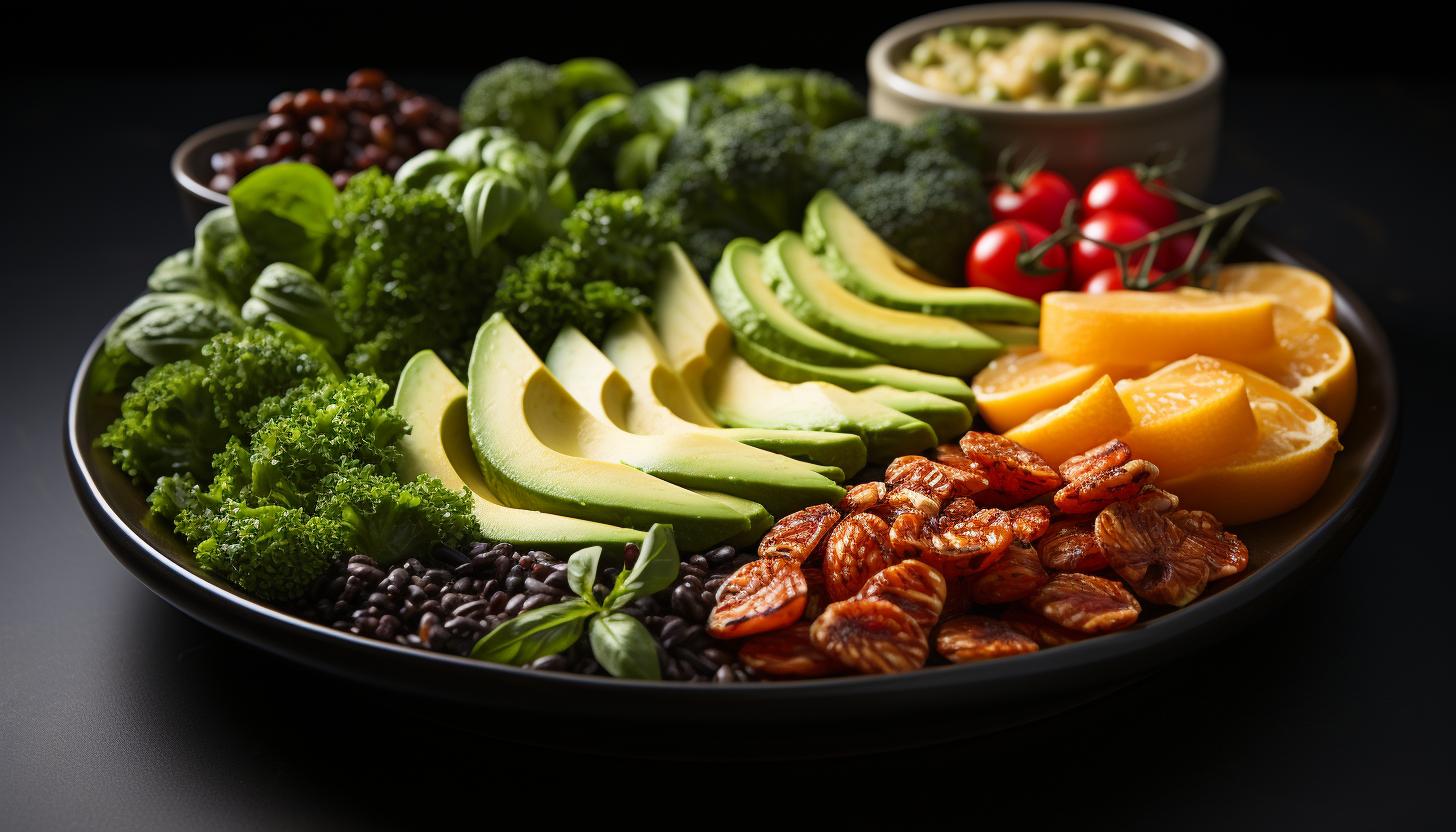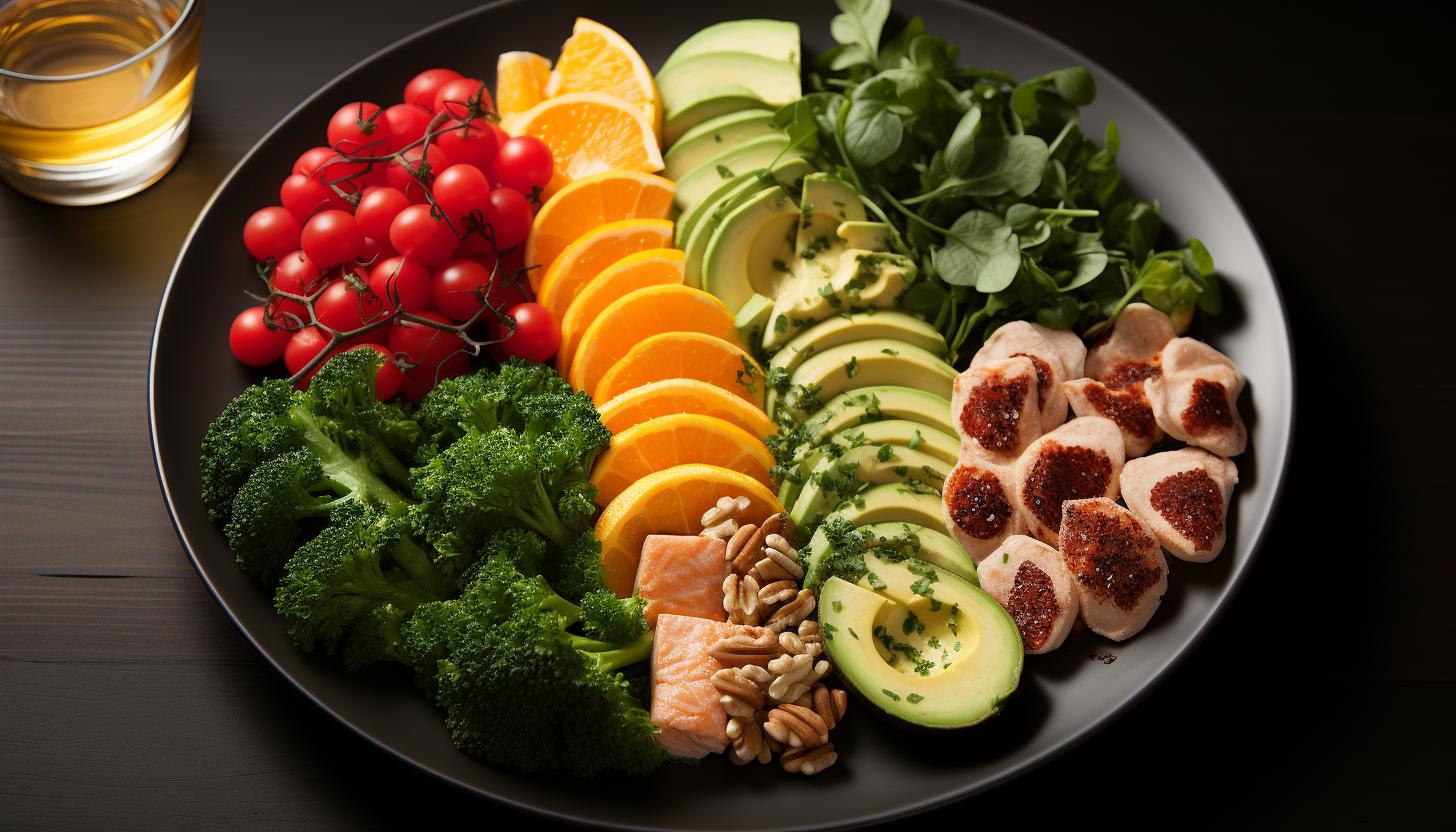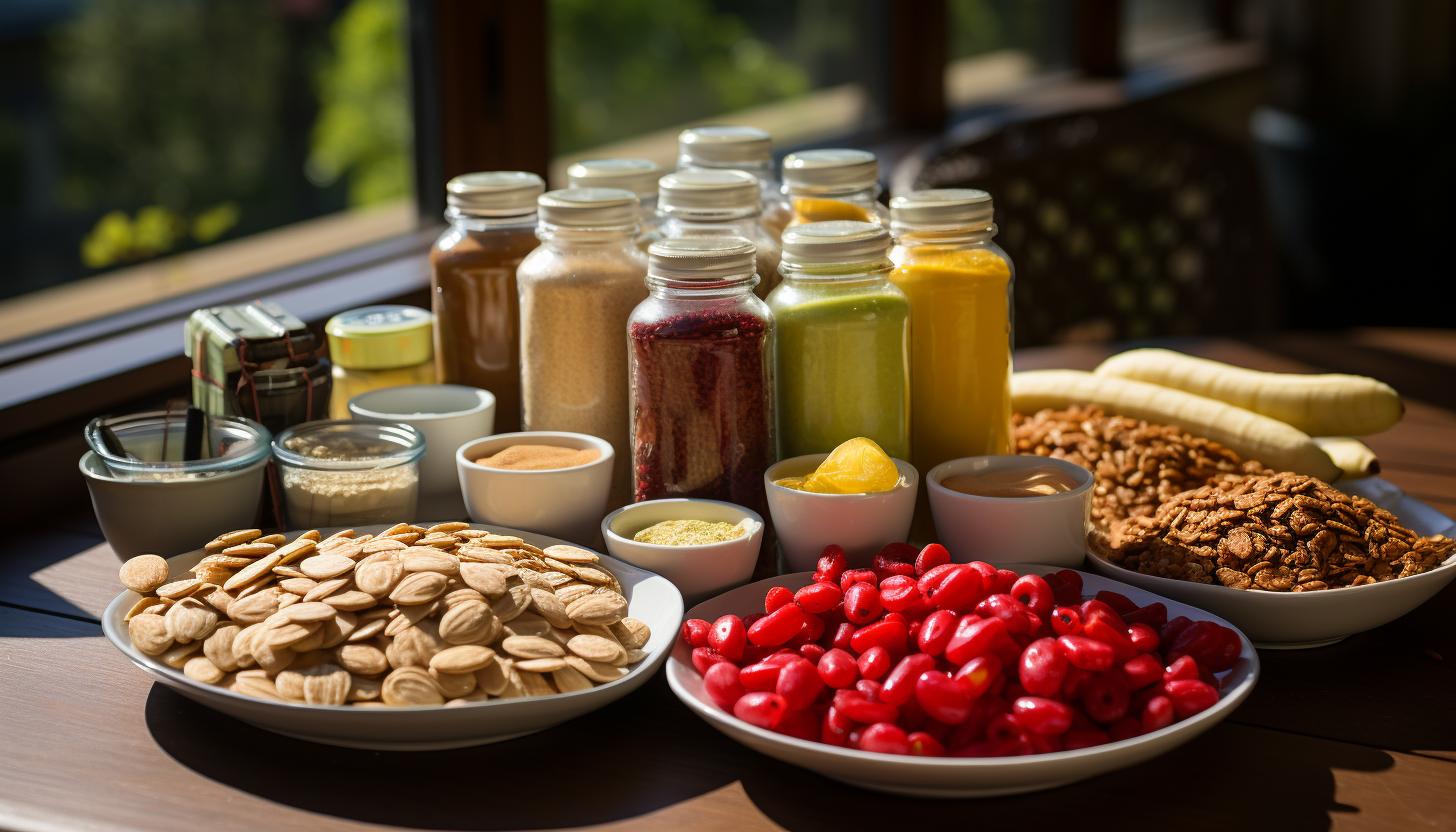Nutrition Strategies for Marathon Training and Race Day

Are you ready to take on the challenge of marathon training and race day?
In order to perform at your best, it’s crucial to fuel your body properly. This article will provide you with evidence-based nutrition strategies that will help you meet your caloric needs, build a balanced plate, stay hydrated, and optimize pre-race fueling.
We’ll also explore recovery nutrition to ensure that you bounce back stronger than ever.
Get ready to conquer the marathon with these practical tips!
Understanding Your Caloric Needs

Understanding your caloric needs is essential for effective marathon training and race day performance. Your caloric intake should be carefully calculated to meet the energy expenditure demands of long-distance running.
On average, a marathon runner burns about 100 calories per mile, meaning that during a 26.2-mile race, you will burn approximately 2,620 calories. However, this number can vary depending on factors such as body weight, pace, and terrain.
To determine your specific caloric needs, it is recommended to consult with a registered dietitian or sports nutritionist who can assess your individual requirements based on your training volume and intensity. They may use formulas like the Harris-Benedict equation or metabolic testing to estimate your basal metabolic rate (BMR) and then factor in the additional calories burned through exercise.
In addition to considering energy expenditure during marathon training and race day, it’s important to focus on quality nutrition to optimize performance. A well-balanced diet consisting of carbohydrates for fueling energy stores, protein for muscle repair and recovery, healthy fats for sustained energy, and an array of fruits and vegetables for necessary vitamins and minerals is key.
Remember that everyone’s caloric needs are unique; what works for others may not work for you. It’s crucial to listen to your body’s signals of hunger and fullness while also monitoring weight changes over time.
Building a Balanced Plate

To build a well-balanced plate, you should focus on incorporating a variety of nutrient-rich foods. Portion control and nutrient timing are two important factors to consider when creating your meals. By controlling your portions, you can ensure that you are consuming the right amount of each food group without overeating. This is especially crucial for marathon training and race day, as excessive intake can lead to discomfort and hinder performance.
Nutrient timing refers to the strategic consumption of nutrients before, during, and after exercise sessions or races. It helps optimize energy levels, muscle recovery, and overall performance. Before training or racing, it is recommended to consume a balanced meal containing carbohydrates for energy, protein for muscle repair, and healthy fats for sustained fuel.
During intense workouts or races lasting longer than an hour, it is essential to refuel with easily digestible carbohydrates such as sports drinks or gels. These provide quick energy to sustain performance. Additionally, consuming small amounts of protein during long events may help minimize muscle damage.
After exercising or racing, prioritize replenishing your glycogen stores by consuming carbohydrates alongside some lean protein within 30 minutes to maximize recovery benefits.
Remember that building a balanced plate involves portion control and mindful nutrient timing. By following these guidelines, you can support optimal fueling for marathon training and race day performance while maintaining overall health and well-being.
Hydration for Optimal Performance

Hydration is essential for maximizing performance and overall well-being during physical activity. When it comes to endurance exercise like marathon training, proper hydration becomes even more crucial. Electrolyte replacement is a key component of effective hydration strategies. Electrolytes are minerals such as sodium, potassium, and magnesium that play important roles in maintaining fluid balance and muscle function.
To ensure optimal electrolyte replacement, it’s important to consider the timing of your hydration. Drinking fluids with electrolytes before, during, and after your workouts can help replenish what you lose through sweat. During prolonged exercise sessions or intense training, aim to consume fluids containing electrolytes every 15-20 minutes.
Timing is also important for preventing dehydration during races or long training runs. Start hydrating early by drinking fluids with electrolytes at least an hour before your run begins. This gives your body time to absorb the fluids and properly prepare for the physical demands ahead.
As you transition into the next section about pre-race fueling strategies, remember that hydration should be integrated into your overall race day plan. Properly hydrating before and during a race will set you up for success in achieving peak performance levels.
Now let’s explore some pre-race fueling strategies to further optimize your marathon experience.
Pre-Race Fueling Strategies

Before you hit the starting line, it’s crucial to fuel your body properly with a combination of carbohydrates and protein to support optimal performance. Race day nutrition plays a vital role in providing the energy needed for endurance events like marathons.
Here are some carb loading techniques to help you prepare for race day:
1. Increase your carbohydrate intake: In the days leading up to the race, aim to consume around 3-5 grams of carbohydrates per pound of body weight. This will help replenish glycogen stores in your muscles and provide sustained energy during the race.
2. Focus on complex carbs: Choose whole grain breads, pasta, rice, and oats over refined carbohydrates like white bread or sugary snacks. Complex carbs take longer to digest, providing a steady release of energy throughout the race.
3. Don’t forget about protein: While carbohydrates are essential for fueling endurance activities, protein also plays a key role in muscle repair and recovery. Include lean sources of protein such as chicken, fish, tofu, or beans in your pre-race meals.
Recovery Nutrition and Beyond

After completing your marathon, it’s important to replenish your body with nutrient-rich foods to support muscle recovery and overall well-being. Post race replenishment is crucial for restoring glycogen stores, repairing muscles, and reducing inflammation. Nutrient timing plays a key role in optimizing recovery.
Within the first 30 minutes after finishing the race, consume a snack or meal that contains both carbohydrates and protein. This helps kickstart the recovery process by replenishing glycogen stores and providing amino acids for muscle repair. Examples include a banana with peanut butter, Greek yogurt with fruit, or a turkey sandwich on whole grain bread.
During the next few hours, continue to eat regular meals that are balanced with carbohydrates, proteins, and healthy fats. This ensures sustained energy levels while promoting muscle repair. Include foods like lean meats or plant-based protein sources (tofu, legumes), whole grains (quinoa, brown rice), fruits and vegetables, nuts and seeds.
In addition to food choices, hydration is also vital for proper recovery. Aim to drink water throughout the day to replace fluids lost during the race.
Conclusion
In conclusion, remember to fuel your marathon journey with nutritious strategies!
Understand your caloric needs and build a balanced plate filled with proteins, carbs, and healthy fats.
Hydrate adequately for optimal performance and quench your thirst on race day.
Prioritize pre-race fueling to power through the miles ahead.
And don’t forget about recovery nutrition to replenish your body post-race.
Embrace these evidence-based techniques and conquer the marathon course like a champion!






